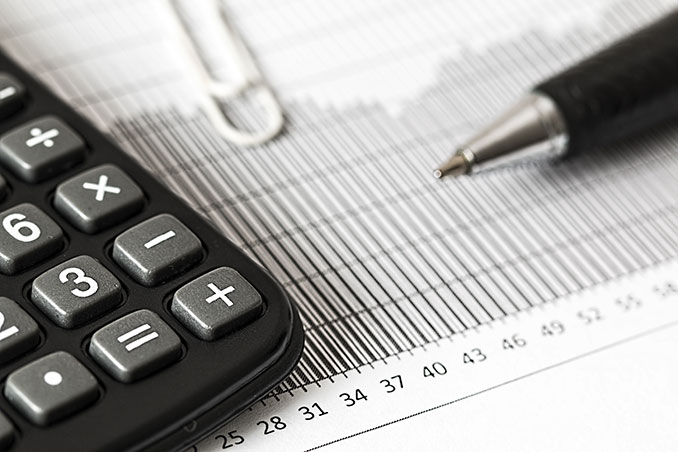Wednesday, March 16, 2022 2:39 pm, Posted by Absolute Destruction

As tax season officially begins in Canada, spring is also fast approaching around this time of year. Between gathering your tax documents and filing your tax return, you might be planning your spring cleaning too. It's typical to think about decluttering when you see all the paperwork, files and personal records piling up in your cabinet.
Although it's a great time to freshen up your office and throw away large amounts of old paper records, it's crucial to review all of them. Some important documents you need to keep for a certain period. Meanwhile, securely destroy any materials that contain your personal information to avoid being a victim of identity theft.
Thus, we’ll walk you through the essential tax-related records you need to keep in Canada and the proper ways to store and destroy them.
Tax-Related Records
The Canada Revenue Agency (CRA) requires you to keep your tax-related records for six years. Basically, the time frame begins from the end of the last taxation year that you filed your tax return. If the CRA wants you to keep them longer than six years, they will have to inform you either in person or by your registered mail.
Tax-related records in Canada include a copy of your tax returns, your notice of assessment and a notice of reassessment if applicable. It also involves financial records that will support your documents.
A company that provides paper shredding in Mississauga compiled a list of confidential records that you need to keep and prepare when filing your taxes in Canada. These confidential records are the following:
Income Records
Business owners must keep these income records, which cover your business's gross income. It's typically the entire income before deducting any expenses, including those related to goods sold. This type of record must contain the total amount of income, when you received it, and your income source.
You have to support these income entries with original documents, such as:
- Receipts
- Sales invoices
- Contracts
- Bank deposit slips
- Fee statements
Expense Records
It's essential to have a daily record of all the expenses you incur for your business. Make sure to ask for receipts or other proof of purchase when you pay anything for your business. The goods or services you purchased should be recorded on the receipt.
But that may not always be possible, as in the case of cash register tapes and a seller not providing receipts. Then it's up to you to record the description of the goods or services or the transaction details in your expense journal.
Property Records
Keeping a record of all the properties you purchased or sold is also vital. Your property records must cover the following information:
- The date you sold or bought the property
- The amount you paid or received from the sale
- The owner's name of the property you purchased

The Importance of Keeping and Destroying Records
In Canada's world of document retention, keeping business documents for a minimum of six years is essential. You need most of these documents for tax-filing purposes. But why do you need to keep your information safe after tax season?
Besides the possibility of CRA auditing your business and asking for your tax records, record-keeping of financial and personal records is beneficial for the following reasons:
- It will help you identify your income sources and take advantage of non-business or non-taxable income when filing your taxes.
- It will help you avoid penalties and save money by deducting or claiming input tax credits you're eligible for.
- It will help you better understand your business's financial position and prepare budgets and forecasts.
While keeping records is essential, properly destroying them is also crucial after the necessary retention period. Piling documents that your business no longer needs can result in costly storage and maintenance. Your employees can also end up wasting their valuable time sifting through hundreds of obsolete and insignificant documents.
Thus, it's critical to ensure that you're retaining and getting rid of the proper documents and information at the appropriate time.
Best Practices on Storing and Disposing of Records
How do you store and dispose of records in your company? Note that you don't have to retain every paperwork of your business. This doesn't mean throwing inessential paper records all of a sudden. They might contain confidential information that could put your business and clients' privacy at risk.
Here are the best practices you can implement when keeping adequate records and dealing with the destruction of books and other company records:
Use the Best Method to Store and Manage Records
The best method in storing and managing records depends on your business type. But select something that will protect your documents from harm or loss and make retrieval secure and more manageable. It can be investing in a document management system, hiring a records management system, or securing your office filing cabinet.
Set up a Document Retention Policy on Your Company
Your business can destroy records if it's not under a legal obligation to retain them or has reached the required retention periods. However, ensure to have a comprehensive document retention policy in place. This will keep everyone in your company on the same page about storing and destroying records without any legal implications.
Establish a Secure Document Destruction Process
Proper document disposal is critical to avoid the risk of data breaches and identity theft. That's why the Personal Information Protection and Electronic Documents Act (PIPEDA) requires organizations to establish guidelines and procedures when destroying personal information records.
If you're working with a shredding company, make sure the entire destruction process protects your records every step of the way.
| Pro Tip If possible, create a list of all your existing documents to ensure that it's easier for you to decide whether you should keep them or not. |
Having Trouble Deciding What Records to Keep and Records to Destroy?
Having the appropriate document management systems and processes in place can help reduce the stress and protect your business and clients' privacy. However, deciding what records you should keep and destroy can be overwhelming most of the time.
This is where getting a service from a paper shredding company can come in handy. We can help you eliminate confidential data and documents without compromising your security. Contact us today and talk about how we can better assist you.
Let Absolute Destruction take care of the destruction of your records. Contact us today for a free consultation.
FAQs on Taxes & Your Privacy: What Records to Keep & Destroy
How long should I keep my tax documents in Canada?
In Canada, you have to keep your documents for six years, starting from the end of the last tax year you filed your tax return. If you filed late, the retention period also begins late. Thus, it's best to keep all your vital records for a minimum of seven years to be safe.
Where do I keep my Canadian tax records?
You have to keep your tax records at your place of business or residence in Canada, except when the CRA allows you to keep them somewhere else. If you decide to change your place of residence, you need to take all your personal records. But make sure to inform the CRA. When it comes to business records, you have to ask permission if you decide to leave Canada.
Who has to keep tax records by law?
Based on the law, here are the following individuals who have to keep records in Canada:
- Those who have to file their tax returns
- Those who operate a business or participate in commercial activities
- Payroll service providers
- Non-profit organizations
- Universities and colleges
- Municipal corporations
- School authorities
- Qualified Donees

